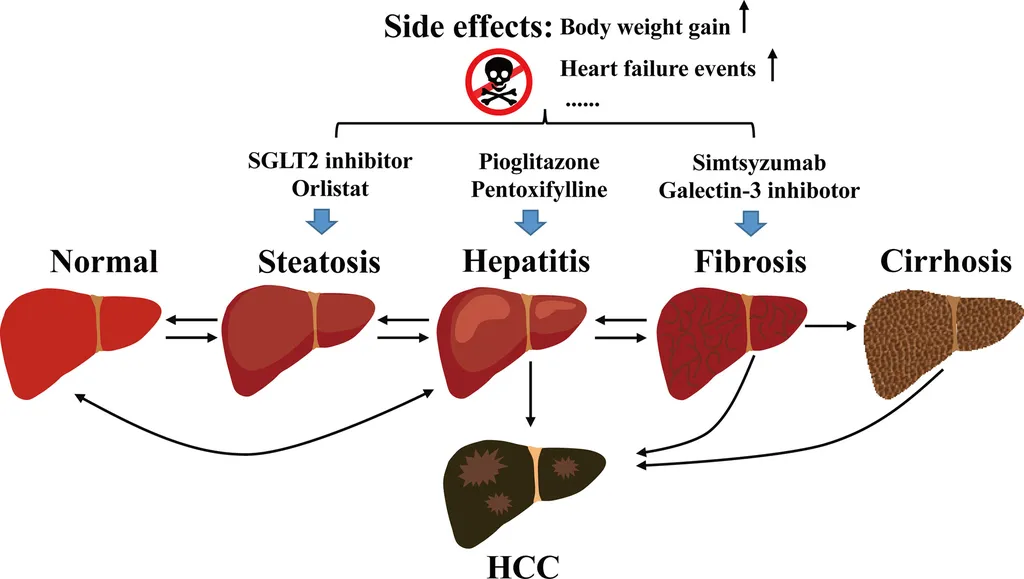In the heart of China, researchers are unlocking the potential of an ancient medicinal herb to combat a modern epidemic: non-alcoholic fatty liver disease (NAFLD). Zezhu Du, a scientist at the College of Food Science and Technology, Yunnan Agricultural University, and the Yunnan Research Center for Advanced Tea Processing, has been leading a study that could revolutionize the way we approach this global health challenge.
NAFLD, a condition characterized by excessive fat accumulation in the liver, is strongly linked to obesity and is often exacerbated by an imbalance in gut microbiota. Traditional treatments have focused on lifestyle changes and managing underlying conditions, but Du’s research offers a promising alternative. “We’ve been exploring the potential of Amomum tsao-ko, a traditional Chinese medicinal herb, to alleviate NAFLD symptoms and improve overall health,” Du explains.
Amomum tsao-ko, known for its antioxidant and anti-inflammatory properties, has shown significant promise in animal models. In a study published in the Journal of Agriculture and Food Research (translated as ‘Journal of Agricultural and Food Research’), Du and his team investigated the effects of aqueous extracts of ATK on high-fat diet-induced NAFLD in mice. The results were striking. ATK treatment led to a significant reduction in body weight gain, blood glucose levels, and both serum and hepatic lipid concentrations. Moreover, the herb alleviated hepatic steatosis and inflammation, enhanced antioxidant capacity, and suppressed the expression of pro-inflammatory cytokines.
But the benefits didn’t stop at the liver. The study also revealed that ATK could reverse gut microbiota dysbiosis, a condition often seen in NAFLD patients. “We found that ATK restored microbial community diversity and increased the abundance of beneficial bacteria,” Du notes. This finding is particularly exciting as it suggests that ATK could have a holistic impact on health, addressing both liver and gut health simultaneously.
The commercial implications of this research are substantial. With the global prevalence of NAFLD on the rise, there is a pressing need for effective and accessible treatments. ATK, a readily available and affordable herb, could be a game-changer in the management of this condition. Moreover, the study’s findings could pave the way for the development of functional foods and dietary supplements that harness the power of ATK to promote liver and gut health.
Du’s research also highlights the potential of traditional medicines in addressing modern health challenges. “Our study underscores the importance of exploring traditional remedies for their potential health benefits,” Du says. “In an era of rising healthcare costs and antibiotic resistance, it’s crucial that we look to nature for solutions.”
As we grapple with the growing burden of NAFLD and other diet-related health conditions, Du’s research offers a beacon of hope. By unlocking the potential of Amomum tsao-ko, we may be able to develop effective, accessible, and sustainable solutions to improve liver and gut health. The journey is just beginning, but the promise is clear: traditional medicines may hold the key to addressing some of our most pressing health challenges.

